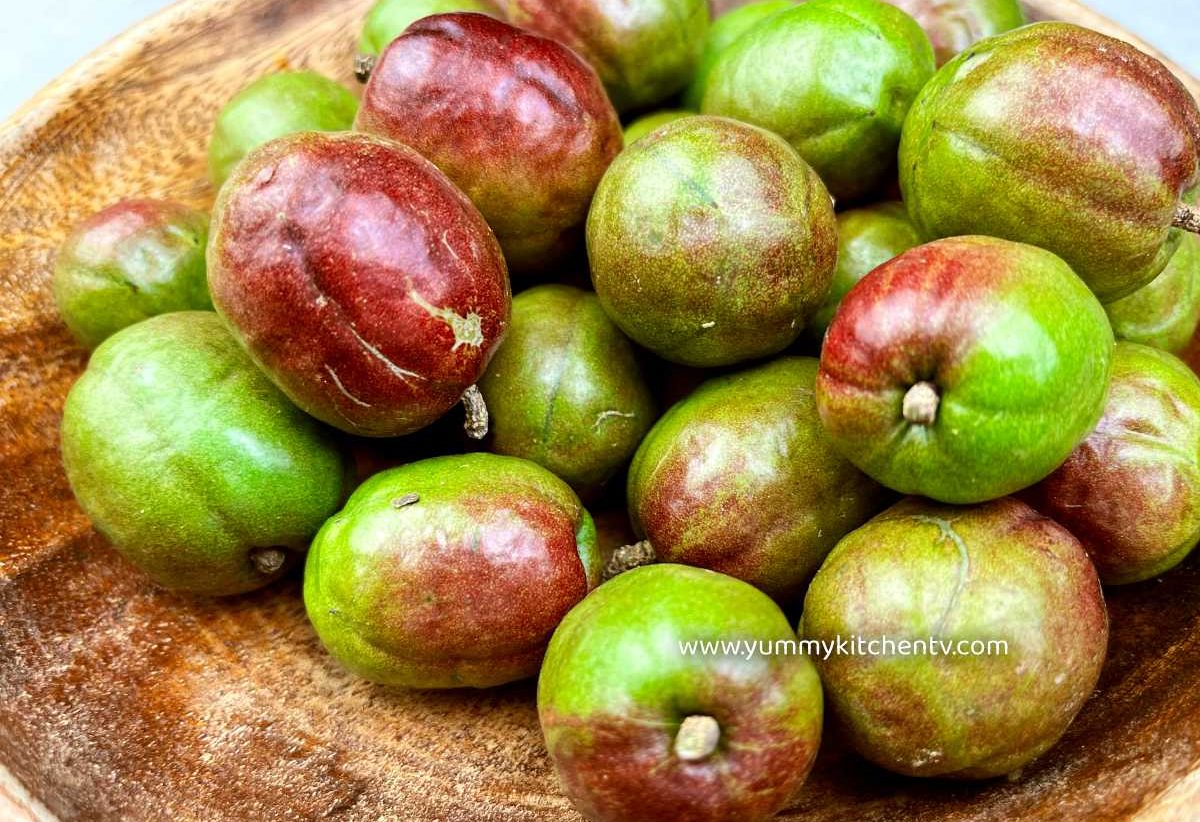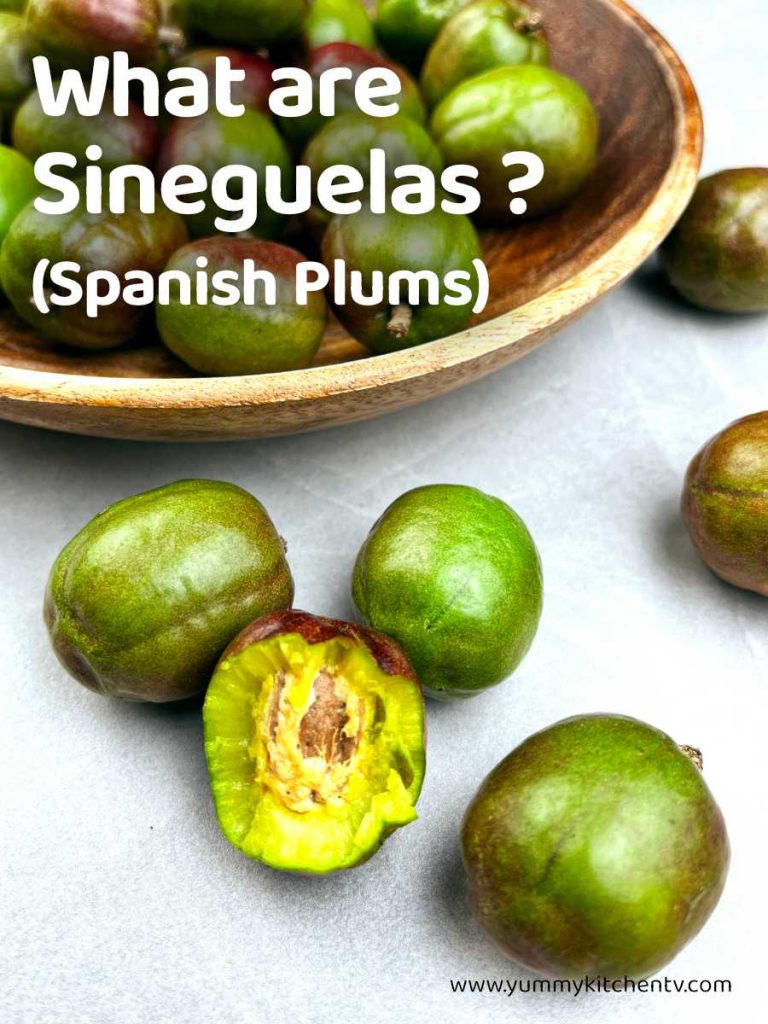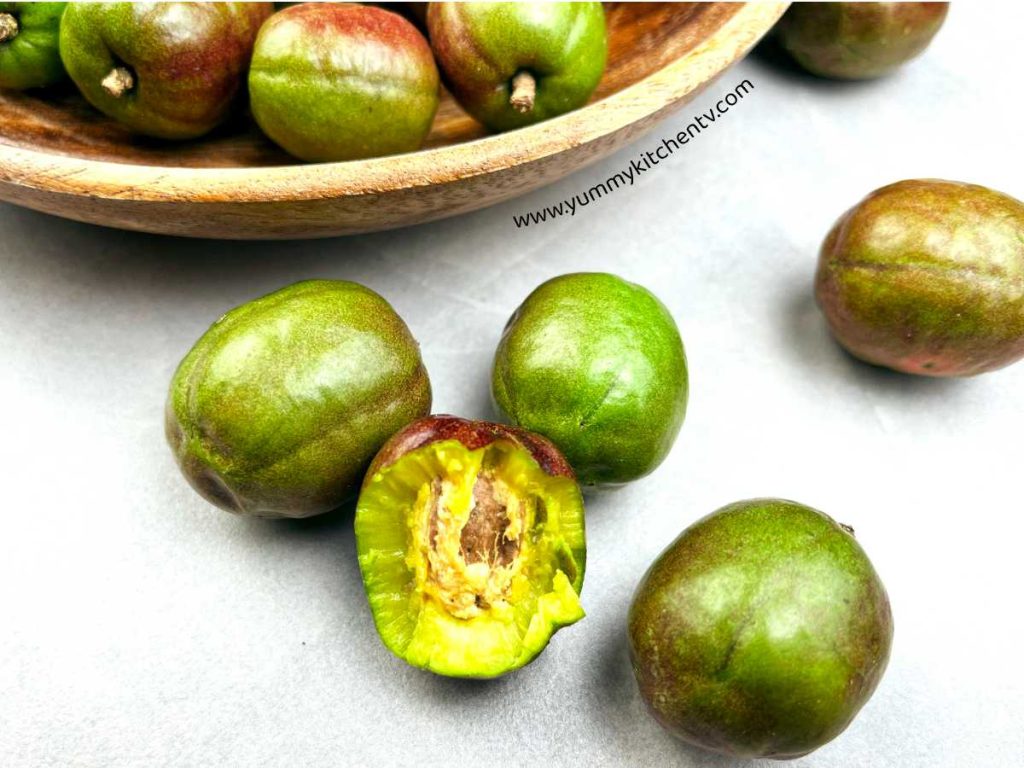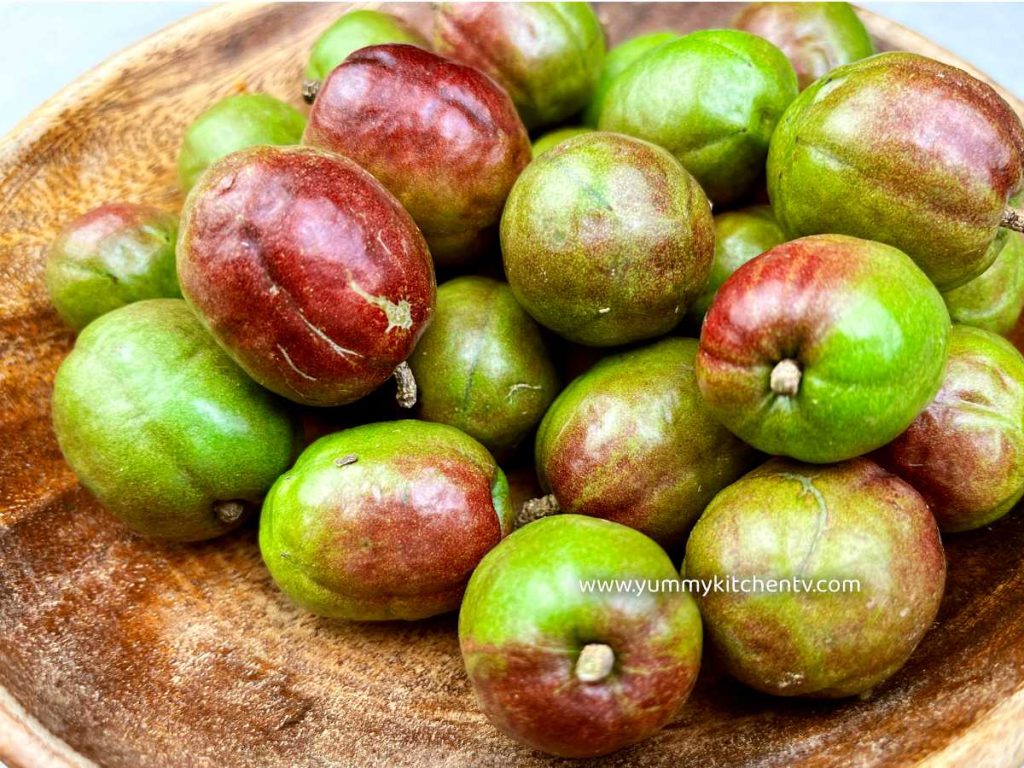The Sineguelas fruit in English ‘Spanish Plum’ is an exotic native fruit from Latin America known for its antioxidant properties. But also found in the Philippines, as a seasonal summer fruit, having a purple with spots of green colored skin, has subtly sweet taste, favorably eaten for its benefits such as antioxidants, ascorbic acid and Vitamin C.
A short Introduction
The Sineguelas, (Spanish plum scientific name Spondias purpurea) is a native fruit from the Western Coast of South and Central America, and Mexico. Brought to the Philippines from the Spaniards 400 years ago, and has since thrived in the tropical weather and soil of the Philippines. There are two varieties of the plum, both having a large inedible core (seed) in the middle. Both versatile enough to be cultivated in sand, loams, gravel, and soil with an abundance of calcium.
The Sinegualas tree or the Spanish plum tree grows to a height of 25 meters, bears its best fruits in the seasons of April to June, but are at its most sweet during the month of May. In the Sineguelas season; the fruits can grow to around 1 to 1.5 inches in diameter, having a reddish to maroon smooth, shiny, skin, with large green spots. The unripe flesh feels tender and tastes slightly astringent, this ripens into a soft almost mushy sweet fruit with a dark red or yellow exterior. The fruit is eaten raw once it’s ripe, or consumed by cooking them in sinigang, a traditional Filipino sour soup made with tamarind, choice of meat, leafy vegetables, tomatoes, and more, some who like it sweeter add fruits such as the Spanish plum leaves and fruit. You can also find them in another Filipino dish; kinilaw which is a raw fish salad cooked with the acidity of limes or lemons, aromatics and seasonings, and the addition of fruit such as plums especially when they are in season to add some sweetness.
A fruit that a number of Filipinos can also connect to their childhood, this memorable fruit is eaten in the summer, taken directly from the basket of fruit laying in the middle of the dinner table, from the fridge to cool off from the summer heat, or eaten outside to enjoy with friends and family while feeling the afternoon or night breeze.
Sineguelas benefits (Spanish plum benefits)
In the Philippines, this fruit is called “Food of the gods”, a name given by many due to the numerous benefits it has. While many choose to eat leafy greens to supply the body with vitamins and nutrients. Fruit such as sineguelas are also a good way to provide the body with antioxidants, vitamins, and fibers that are good for diabetes, to those who are pregnant, and more. Here are such examples:
- Rich in dietary fiber, this helps improve digestion and for a healthy weight loss. Fiber helps keep the body feeling full, helps avoid snacking that leads you to gain more weight.
- Has a good amount of carbohydrates that reduces fatigue, creates energy for the body.
- Great for the Immune system. A fruit consisting of Vitamins A, B, and C, calcium, iron, and phosphorus, all which strengthens the body’s immunity.
- The addition of antioxidants which this fruit is also abundant in, slows premature aging.
- It cleanses the body. How? This fruit is ‘diuretic’, meaning it cleanses the body through urination.
- Helpful to Anemic people, being high in iron, it helps with the oxygenation of cells.
- These also alleviate spasms, as it has nutrients such as calcium, vitamins, and potassium. A fruit suitable for those with a salt deficiency.
*Sineguelas side effects : Like many fruits, there is a good amount of calories, carbohydrates, fructose and glucose. As such, this should be eaten in moderation especially for those with diabetics.
Sineguelas might rarely be seen out of season, but if you do have a chance to add them into your diet, try them out. You can likely find them at dry markets in the province, sometimes wet markets, or even online shops nowadays. Increase your consumption of vitamins and nutrients, with this sweet, juicy plum.






